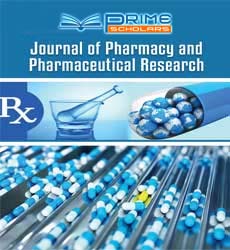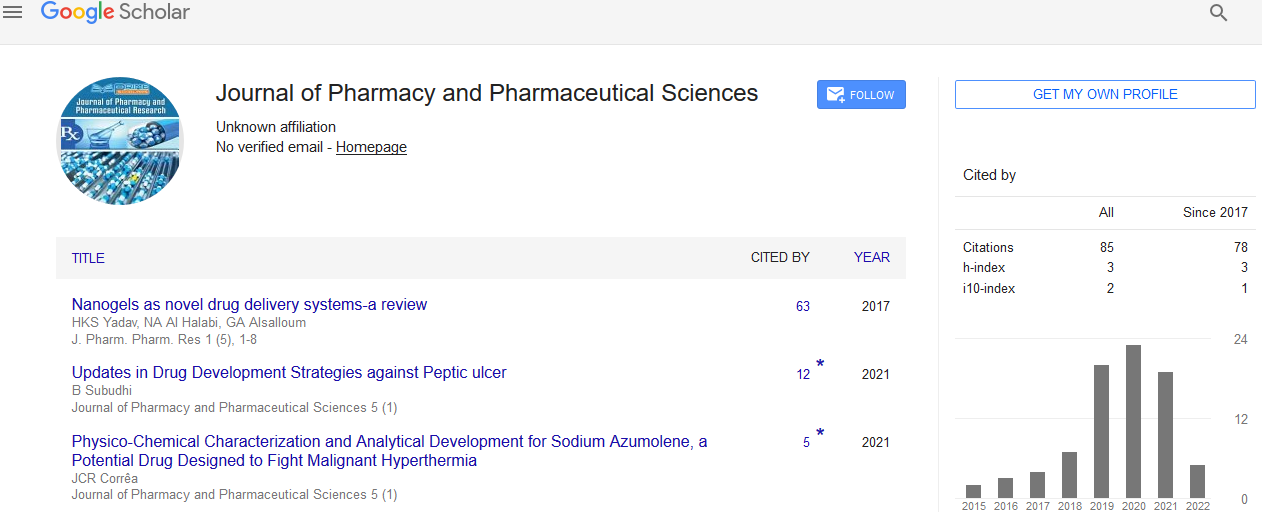Commentary Article - (2023) Volume 7, Issue 4
Revolutionizing Medicine: The Ongoing Quest for Antibiotic Drug Discovery
Charles Sean*
Department of Pharmacy, University of Federal, Brazil
*Correspondence:
Charles Sean,
Department of Pharmacy, University of Federal,
Brazil,
Email:
Received: 29-Nov-2023, Manuscript No. IPIPR-24-18819 ;
Editor assigned: 01-Dec-2023, Pre QC No. IPIPR-24-18819 (PQ);
Reviewed: 15-Dec-2023, QC No. IPIPR-24-18819 ;
Revised: 20-Dec-2023, Manuscript No. IPIPR-24-18819 (R);
Published:
27-Dec-2023, DOI: 10.21767/ipipr.7.04.033
Description
In the realm of medicine, antibiotics have played a pivotal role
in combating infectious diseases for nearly a century. However,
the rise of antibiotic-resistant bacteria has underscored the
urgent need for continuous antibiotic drug discovery. This article
explores the challenges, innovations, and promising avenues in
the quest to develop new antibiotics. The misuse and overuse
of antibiotics have led to the emergence of antibiotic-resistant
strains of bacteria, rendering once-effective drugs ineffective. This
global health crisis poses a serious threat, as common infections
become harder to treat, increasing morbidity and mortality rates.
Addressing this challenge requires the development of new
antibiotics that can combat resistant strains while minimizing
side effects. Antibiotic drug discovery is a complex and lengthy
process fraught with challenges. Traditional methods often
involve screening natural sources like soil bacteria for antibiotic
properties, but these avenues have been exhausted. Additionally,
the rapid evolution of bacteria necessitates constant adaptation
and innovation in drug development. The financial and regulatory
hurdles further complicate the journey from laboratory
discovery to clinical application. Advancements in genomics have
revolutionized antibiotic discovery. Researchers can now analyze
the genomes of bacteria to identify potential antibiotic-producing
genes. This targeted approach accelerates the screening process,
leading to the discovery of novel compounds. Synthetic biology
enables scientists to engineer microorganisms to produce
new antibiotics or enhance the effectiveness of existing ones.
This approach allows for the creation of customized antibiotic
compounds with improved therapeutic properties. Artificial
intelligence and machine learning are increasingly being employed
in drug discovery. These technologies analyze vast datasets to
predict potential drug candidates, significantly reducing the
time and resources required for development. Researchers are
exploring unique bacterial pathways and cellular processes as
potential antibiotic targets. By focusing on previously unexplored
mechanisms, scientists aim to develop drugs that are less likely
to encounter resistance. Several promising antibiotic candidates
are currently in various stages of development. Compounds
like teixobactin, derived from soil bacteria, have shown efficacy
against a broad spectrum of bacteria, including drug-resistant
strains. The exploration of bacteriophages, viruses that infect and
kill bacteria, is another avenue showing potential for combating
antibiotic-resistant infections. Antibiotic drug discovery stands
at a critical juncture, with the need for new, effective antibiotics
more pressing than ever. While challenges persist, innovative
approaches, from genomics to artificial intelligence, offer hope
for the development of novel compounds. The collaborative
efforts of researchers, pharmaceutical companies, and regulatory
bodies are crucial in overcoming obstacles and bringing these
life-saving drugs from the laboratory to the clinic. As we continue
to explore new frontiers in science and technology, the future
of antibiotic drug discovery holds the promise of a healthier,
more resilient global population. In the ongoing battle against
antibiotic resistance, collaborations and interdisciplinary research
are essential. Governments, pharmaceutical companies, and
academic institutions must join forces to provide the necessary
resources, funding, and expertise to drive antibiotic drug
discovery forward. Moreover, public awareness and education are
crucial components of this fight. Understanding the importance of
responsible antibiotic use and the significance of ongoing research
can empower individuals to contribute to the collective effort in
overcoming bacterial resistance.
Acknowledgement
The author is grateful to the journal editor and the anonymous
reviewers for their helpful comments and suggestions.
Conflict Of Interest
The author declared no potential conflicts of interest for the
research, authorship, and/or publication of this article.
Citation: Sean C (2023) Revolutionizing Medicine: The Ongoing Quest for Antibiotic Drug Discovery. J Pharm Pharm Res. 7:033
Copyright: © 2023 Sean C. This is an open-access article distributed under the terms of the Creative Commons Attribution License, which permits unrestricted use, distribution, and reproduction in any medium, provided the original author and source are credited.

